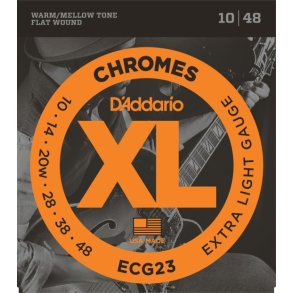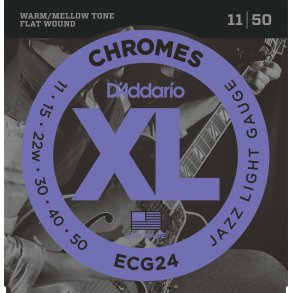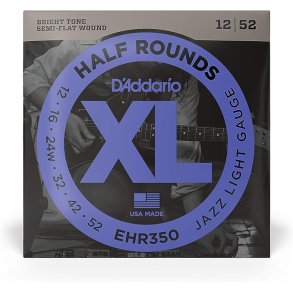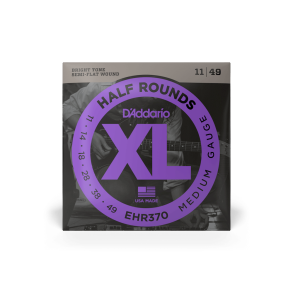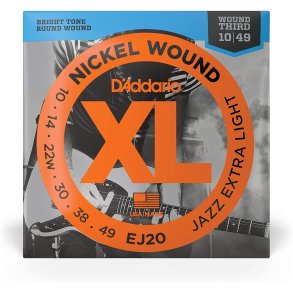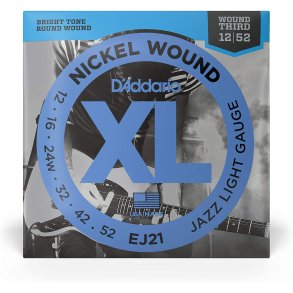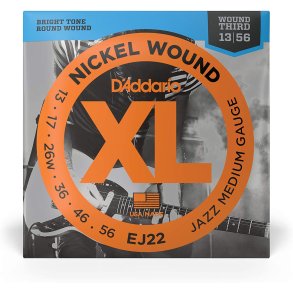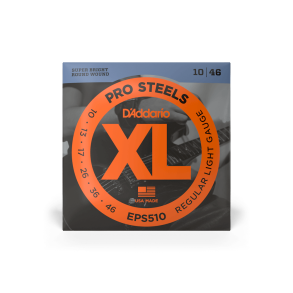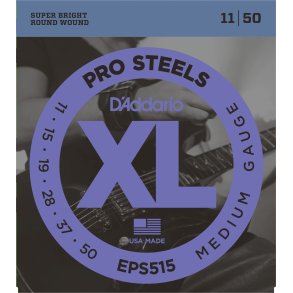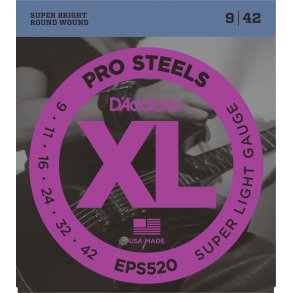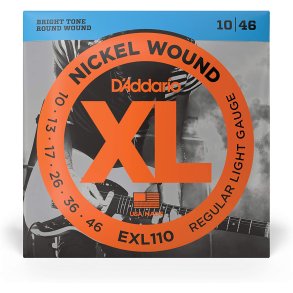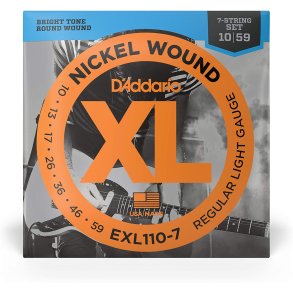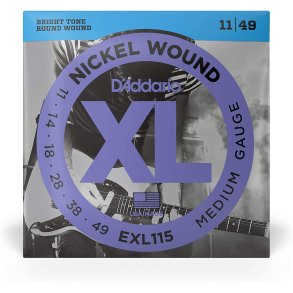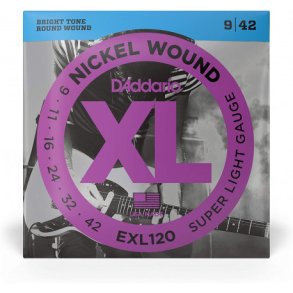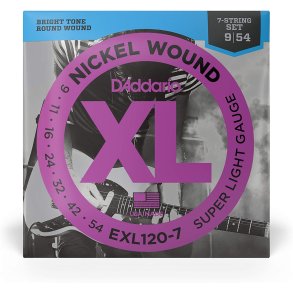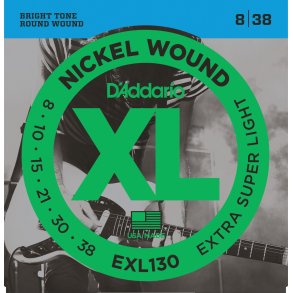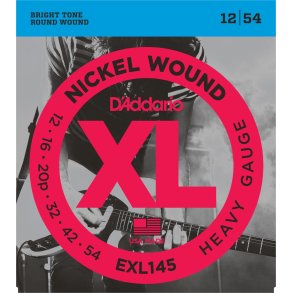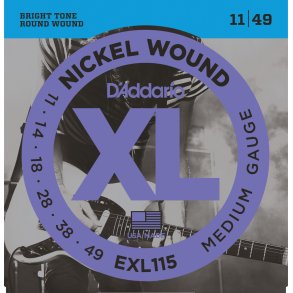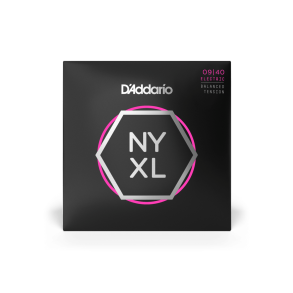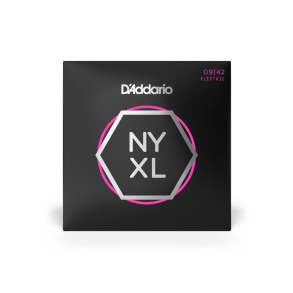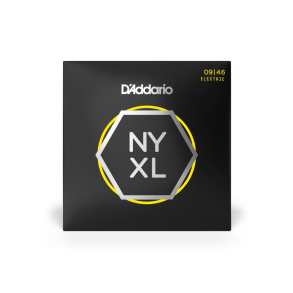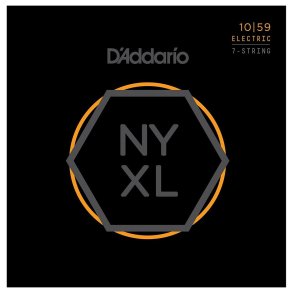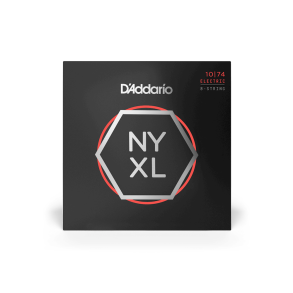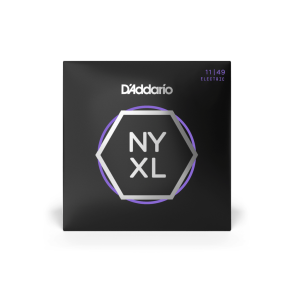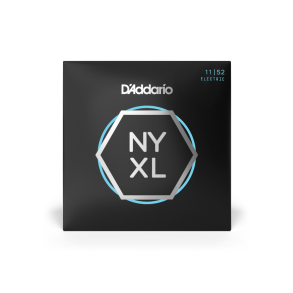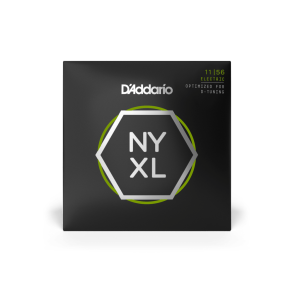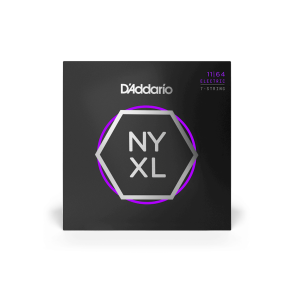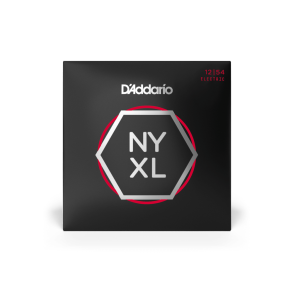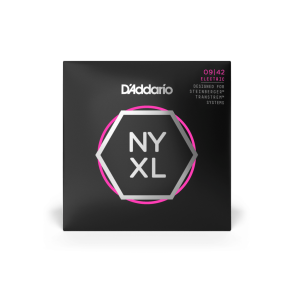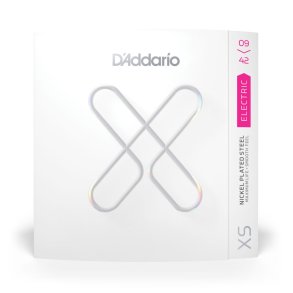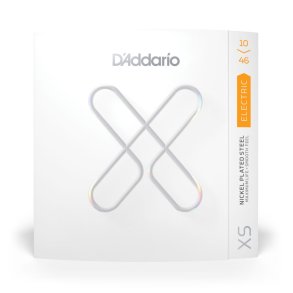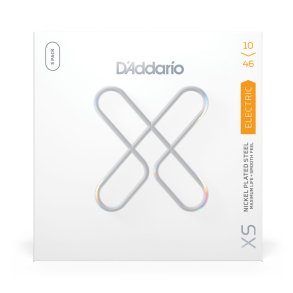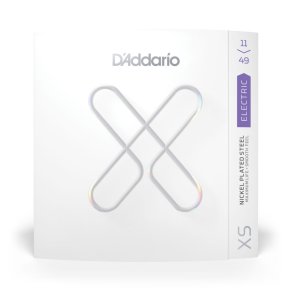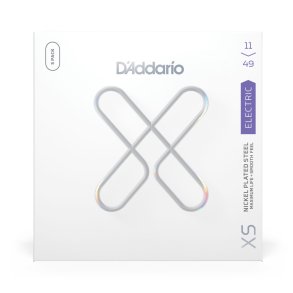Strings for electric guitar
Your electric guitar needs new strings to keep that great sound. See our selection of electric guitar strings here.
In electric guitar requires equipment and it's easy to forget the little things, but don't forget the strings. Changing the strings on your electric guitar regularly has a huge impact on its maintenance and sound.
Which strings should I choose for my electric guitar?
So which strings should you choose for your electric guitar? That's a good question. There are several varieties to choose from, so you're by no means locked into a specific string. However, there are a few things to consider when choosing strings:
The thickness
There are different thicknesses of strings. Without getting too technical, we can divide them into thin, medium and thick.
Here it makes sense to choose strings based on the type of music you'll primarily be playing. If you're going to be quick on your fingers and play leads and rhythms, you should go with thin strings as they are easier to handle for fast finger work.
If you play blues or classic rock, you should use medium gauge strings as they give a more powerful sound but still allow you to bend the notes, which is typically done a lot in both blues and rock.
For jazz and heavy metal, go for the thick strings.
If you don't know what type of music you'll be playing, consider whether you prioritize playability or sound in general. Thicker strings generally produce a round and smooth sound, but they're also the hardest to play. Thinner strings have a smaller range but are easier to play.
The core
Different strings have different cores, resulting in different sounds. The most commonly used cores for electric guitar strings are probably nickel-plated steel, nickel, stainless steel, chrome and titanium. Which core to choose is something you'll have to listen for yourself.
Coating
This is probably more of a cosmetic difference. Some strings are coated with polymer, which not only adds color but also protects the string. Whether you prefer coated or uncoated strings is a matter of taste.
Twisting method
The steel wire wrapped around the core of the string can be twisted in different ways. Yes, it can get that nerdy. The two most commonly used twisting methods are called roundwound and flatwound.
With the roundwound method, a round steel wire is used to give the string a lot of small grooves. With flatwound, a flat steel wire is used, which gives the string a smooth surface. Roundwound is often used in rock music and flatwound is often seen in the jazz genre. But you can choose what you want and what suits you best.
Guitar strings best in test
The way your guitar works is that the strings make the sound and the rest of the guitar is designed to optimize that sound.
That's why the strings you choose have a big impact on your guitar sound. Once you know what different types of strings can do and what you prefer, you can look for a set of strings that are best in test. That way, you're guaranteed a good quality set of strings. Then the rest is up to you.

